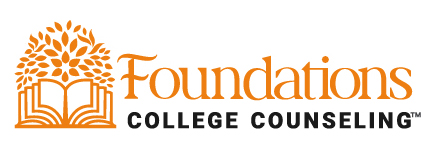It was the start of a relaxing evening when a panicked series of texts came in from one of our students. A parent from their school had approached them at a school event and offered unsolicited advice about scheduling, college admissions, and what colleges want to see from students. The advice contradicted this student’s approach and sent them into an emotional tailspin. “Is this right? I’m worried now. What if colleges think I’ve been lazy because I haven’t taken every single AP class offered?”
That series of texts turned into a much-needed emergency Zoom call with this student whose confidence had been destabilized in one fell swoop by a (hopefully) well-meaning parent.
Why is this important? Because everything—everything— the parent told the student was wrong. Not only was it not true for admissions in general, but it also took zero account for this particular student’s situation, strengths, weaknesses, financial situation, obligations outside of school, values, personal sense of balance, etc. Quite simply, the parent’s unsolicited advice was damaging and inappropriate.
This draws us to the main issue: who should students and parents listen to about college admissions? Independent college counselors are credentialed professionals whose entire job is to shepherd students individually through the college planning and admissions process. We are educated specialists in this field, and as members of the Independent Educational Consultants Association (IECA), we are bound by an honor and duty to work in the student’s best interest, always. Additionally, we follow all NACAC principles of good practice and see them as key to running an ethical, student-centered business. And in the case of Foundations College Counseling, LLC, we also help students with more than a decade of high school classroom teaching experience and a keen understanding of what kids go through on a day-to-day basis trying to juggle everything while also preparing for the biggest decisions of their lives.
Beyond independent college counselors, school-based guidance counselors and school-based college counselors are professional educators whose jobs are to counsel students on how to best pursue their post-secondary goals. They’re also great, we love them, and we are so proud to be able to support them in all the work they do.
Here’s the takeaway:
You wouldn’t accept unsolicited advice from an electrician about legal issues, or from a lawyer about medical issues, or from a doctor about electrical code. Those are people educated and trained in their fields. The same goes with college counseling. Not all sources of information are created alike, and some—no matter how well-meaning they may seem—should be taken with a grain of salt.
Students and parents, before you make the biggest decision and financial/emotional investment of your life, consider talking to a real professional who can help you make the right game plan for you. In the meantime, try to tune out unqualified chatter.

